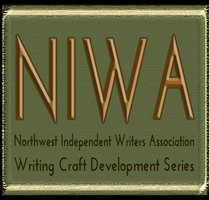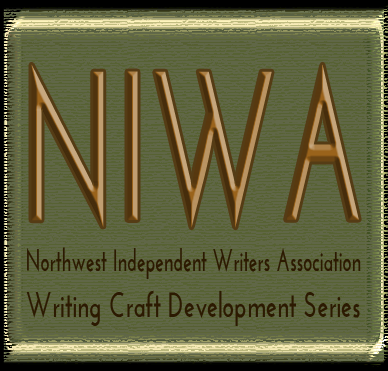 I keep a document pinned to my desktop, one that I write down topics and ideas for stories on. This list is crucial to my preparations for being productive during NaNoWriMo, which I participate in every year. After all—great stories spring from great ideas, but only if you can remember them. When I begin writing a story, the working title is just a handle to carry it by for the time being. Titles are always changed several times over the life of a story. While the actual title might not exist, the story does, in the form of an idea, a prompt. I title each story folder with a working-title, such as Jane’s Legacy. This probably won’t be the final title, but it gives me something to work with until I do know what to call it. Each story file contains two documents. The first document is blank except for one line, which is the prompt, the premise of the story. The second document is the manuscript itself. In the first document, I answer a short list of questions about the overall story arc of my intended tale. The answers help me visualize the basic premise of the story arc.
The answers to these questions make writing the actual story go faster because I know what happened, what their goal is, why their goal is difficult to achieve, and (crucially) how the story ends. Then you build your story:
Question number six is an important thought to consider. · What moral (or immoral) choice is the protagonist going to have to make in their attempt to overcome the odds and achieve their objective? Many final objectives don’t revolve around morality, but all final objectives should have consequences and should involve a struggle. The answer to question number seven is vitally important because every story hinges on how the protagonist overcomes adversity.
Answering question eight is crucial if I want to complete my short story in a timely fashion. Endings are frequently difficult to write because I can see so many different outcomes. I generally write several endings, trying them on to get the perfect fit. This method of preparation keeps me working and ensures I am productive even when my novel is stranded in the desert of “Now What?”. Pre-planning also means I have a good system established for version control. I make a lot of revisions, but I never delete old files as you never know when you might need something you wrote previously. I just give them a good descriptive label such as:
Develop your filing system, save your work regularly, and save it to an external drive (I use Drop-box). In that file, include any sub-files of research and backstory that pertain to your novel or short-story. Do it now, even if you are already deep into your work. You won’t have to stop and look things up so often. All you will have to do is write and save your work. >>>---------------------<<< Credits and Attributions: Connie J. Jasperson is a published poet and the author of nine novels. Her work has appeared in numerous anthologies. A founding member of Myrddin Publishing Group, she can be found blogging regularly on both the craft of writing and art history at Life in the Realm of Fantasy.
0 Comments
 Perhaps you asked a member of a professional writers’ group for feedback about your book or short story. Perhaps it came back slightly sharp, slightly critical, and you think the reader missed the point. Authors are thin-skinned. We offer friends and family (or even casual acquaintances) our work to read, full of expectations that they will enjoy it and think it is stellar. Then we get their assessment back, and it isn’t what we thought we would hear. Perhaps the reader noticed those info dumps we thought wouldn’t matter. Or perhaps they know more about horses (or medicine, or police procedure) than we do and suggest we need to do more research and then rewrite what we thought was the perfect novel. We bleed profusely when a first reader points out places where our work isn’t perfect. For some authors, even mild comments feel like their work has been torn to shreds. A good, honest critique can hurt if you are only expecting to hear about the brilliance of your work. Even if it is worded kindly, criticism can make you feel like you have failed. Even people who have spent years in the business have been known to go ballistic and make an uncomfortable situation worse. But what if it was our favorite work, the best thing we ever wrote? Why couldn’t the reader see that? When I first began this journey, I received feedback that was the opposite of what I expected. I managed to stay polite and tried to listen to what they were actually saying. I knew I had to use their comments to improve my work, but I didn’t know where to begin. Feeling confused, being the only one who doesn’t understand something evokes anger in me. Still, as a former hockey player, I knew that skill and growth could only come through education, practice, and effort. I knew I had to take their comments like a grownup and learn from the experience. Critiques hurt in those days, but when I look back on my earlier work, I can clearly see why it was not acceptable in the state it was in.
Not understanding how to correct what has been pointed out as bad writing habits is the core of why we feel so hurt. You need to be strong, stay calm, and understand that the reader has gone to some trouble for you. Please, don’t go off hurt, bad-mouthing that reader to your friends on your favorite writers’ forums. Something you might want to consider—if they are an author, they may be involved with the same forums in all the many social platforms you are, so have a care what you say online. They’re just like the rest of us. If they have been around for any length of time in the industry, it’s likely they’ve experienced their share of criticism. If you respond publicly in an unprofessional way, the innocent bystanders will remember you and won’t be inclined to work with you either. By now, we should all be aware that how we interact online with others is public information and is visible to the world. Never be less than gracious to a person who reads and critiques your work when you communicate with them. Sit back and consider the areas they find problematic and ask yourself what revisions would make your work better. Don’t ask a fellow member of a professional writers’ forum to read your work unless you want advice that is honest. Even if they don’t “get” your work, they spent their precious time reading it, taking time from their own writing. A piece of advice I like to give everyone is this: some people, even people you know well, are not cut out to be beta readers or readers at all. They shoot from the hip and take no prisoners. I would suggest you don’t expect gentle comments from these sorts of readers, and if you have offered your work to a person who falls into this category, don’t feel guilty for not asking them to read for you again. But once you have cooled down, look at their comments with a fresh eye and try to see why they made them. Negative feedback is a necessary part of growth. Don’t have a tantrum and immediately respond with an angst-riddled rant. This is where you have the chance to cross the invisible line between amateur and professional. Always take the high ground—if a beta reader or first reader has given you a harshly worded critique, respond with a simple “thank you for your time.” Above all, keep writing. _______________________________________________________________________________________________________ Connie J. Jasperson is a published poet and the author of nine novels. Her work has appeared in numerous anthologies. A founding member of Myrddin Publishing Group, she can be found blogging regularly on both the craft of writing and art history at Life in the Realm of Fantasy. |
Archives
January 2023
Categories |
|
Contact us at:
Mailing Address: Northwest Independent Writers Association P.O. Box 1171 Redmond, OR 97756 Email: [email protected] [email protected] |
 RSS Feed
RSS Feed
